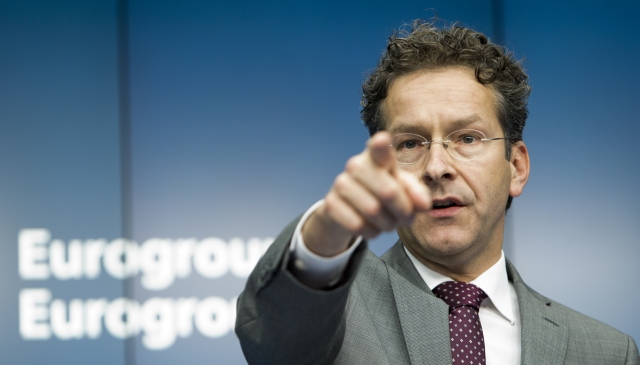Europe groggy by the Greek crisis

(BRUSSELS2) It's not me, it's him! All weekend, this antiphon resounded by declarations, press releases and twitters interposed between the Greek and European leaders. Between Brussels and Athens, after the aborted meeting of the Eurogroup on Saturday afternoon, there is more than a technical dispute, there is a growing incomprehension, a disappointed, bitter love.
Greece, on which so much hope had been placed, praised a few years ago as the very success of the proper use of European funds, appears today as the insolent child, a liar and… a spendthrift. Europe, which is part of the Greek DNA, is selfish, haughty and disrespectful of democracy according to the Tsipras government.
A lack of mutual trust which translates well when we listen to the Greek Minister of Finance, Yanis Varoufakis recount, in detail, on his blog, the dramatic meeting of June 27. " The very idea that the government was going to consult its people was treated with incomprehension and often with disdain bordering on contempt. I was even asked: 'How do you expect ordinary people to understand these complex issues?' The European Commission, for its part, denounced the decision “ unilateral decision by the Greek authorities to abandon the negotiation process "She even decided to publish the details of the proposals made to Greece, breaking the omerta, " in the interest of transparency and for the information of the Greek people ". An exceptional fact that says a lot about the ambient state of mind.
In short, the dishes are broken. And no one wants to buy a new one together. Europe is groggy. But she did not remain inactive. All day Sunday, the phone worked between European leaders. Because the unknown is maximum and the risks multiple.
On the one hand, it is necessary to limit the damage of a Greek default. The European Central Bank has been called in to help. After an exceptional meeting on Sunday, the ECB assured that it wanted to work closely with the Bank of Greece “ to maintain financial stability ". Thereby “emergency cash assistance which keeps the Greek banks alive is going to be maintained ". And Athens announced a strict limitation of the funds that can be withdrawn as the banks closed.
Then, each will be suspended, Monday, to the reactions of the markets. Will the measures taken be sufficient? The unknown is total. A monetary shock cannot be ruled out. And the contagion of the crisis to other countries must be contained. Cyprus, Slovakia or Portugal are particularly “exposed”, according to the indiscretions of European experts.
Finally, we will have to try to keep Greece in the Euro Zone, by preventing it from going bankrupt, without seeming to go back on the abortive discussion of the Eurogroup or accept the Greek demands. In other words, squaring the circle. A way out could be the partial cancellation of the Greek debt. A hypothesis clearly put on the table… by the Americans. " It is important to arrive at a solution that includes a discussion on debt reduction said US Treasury Secretary Lew in his telephone conversations with his German counterparts Wolfgang Schäuble and French Michel Sapin. While Barack Obama urged German Chancellor Angela Merkel to "do every effort" to allow Greece to resuming reforms and growth within the euro area ". In other words, no Grexit possible for Washington!
In France, François Hollande convened a restricted council at the Elysée for this Monday. And in Brussels, the President of the European Commission, Jean-Claude Juncker, will speak to the press around 13 p.m. Suffice to say that the hour is serious. After "I came to tell you that I'm leaving" by Gainsbourg, will the Europeans have the courage to hum to Greece, like Jacques Brel: "Ne me quitte pas" and end with a "Formidable" by Stromae . Nothing is less sure…
(Nicolas Gros-Verheyde) published in Sud-Ouest, June 29.


